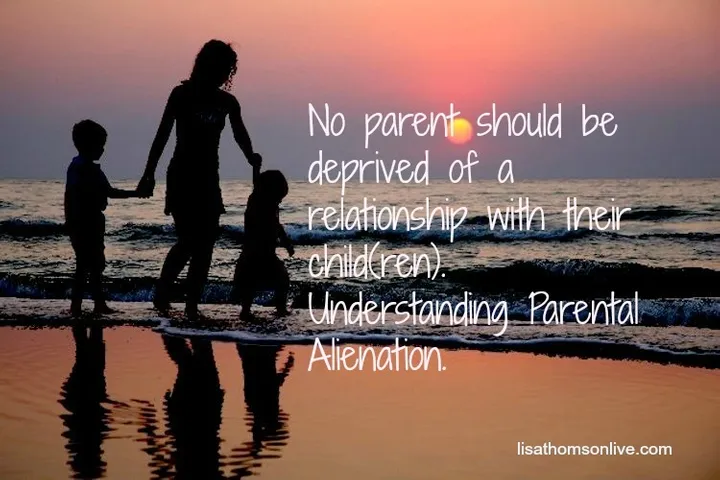
Is your child being coerced into disliking you? This is known as narcissistic parental alienation syndrome.
You may have found that your once-healthy relationship with your children has become increasingly strained after your difficult divorce. Your children are now avoidant, disrespectful, or even cruel.
You may have noticed your kids have started to sound like your ex-partner when they criticize you. As a result, you might suspect that your ex is bad-mouthing you and possibly even manipulating your children into disliking you.
This phenomenon, known as narcissistic parental alienation syndrome, is a severe issue many parents worldwide have experienced.
What is narcissistic parental alienation syndrome?
Narcissistic parental alienation syndrome, or parental alienation syndrome (PAS), occurs when one parent coercively tries to alienate their child from an otherwise loving parent. This manipulation then results in the child’s dislike or rejection of the alienated parent.
The term first emerged in the 1980s when American child psychiatrist Richard Gardner began noticing this behavior during child-custody disputes.
Gardner found that one parent would purposefully program (or brainwash) the child with certain ideas and attitudes about the other parent, even when these ideas were at odds with the child’s actual experiences.
The child would then “join in” vilifying the targeted parent, often because these behaviors were highly reinforced and rewarded by the alienating parent.
Importantly, the term PAS is only applicable when the targeted person is considered a good parent and hasn’t done anything to warrant this alienation. This term does not apply if the alienated parent is truly abusive.
What is narcissistic parental brainwashing?
Narcissistic parental brainwashing occurs when a parent with narcissistic tendencies psychologically manipulates the child into thinking false narratives about the other parent. This could entail painting the other parent as dangerous, unloving, unintelligent, or somehow not good for the child.
Many PAS children respond to this programming in such a way that they seem to completely forget or suppress any positive feelings or experiences they’ve had with the targeted parent.
Warning signs of parental alienation syndrome
Signs of PAS may include the following:
- unjustified or irrational campaign to vilify loving parent
- chil
- d’s extreme idealization of one parent over the other (black-and-white thinking)
- vilification of the targeted parent’s entire family and friends
- support of the child’s negative actions and attitudes toward the targeted parent
- denial of guilt or lack of empathy over the cruel treatment toward the targeted parent
- the child’s “own” opinion are highly emphasized by the manipulative parent (e.g. “Chelsea just doesn’t like her dad, and she shouldn’t be forced to see him.”
- the child uses the same tone that the narcissistic parent uses toward the targeted parent
Examples of narcissistic parental alienation
Narcissistic parental alienation may look like the following:
The offending parent purposefully interferes with the targeted parent’s time with the child. E.g. The other parent shows up to “volunteer” in the school cafeteria when they know you will be having lunch with your child.
The offending parent tells the child that the other parent isn’t interested in their life. “Your mother probably isn’t going to show up to get you today. She abandoned you before and will probably do it again.”
The offending parent is uncompromising regarding the parenting schedule. E.g. You ask to switch custody days because you have an important doctor’s appointment on Wednesday, but the other parent refuses to compromise, causing you to miss a day with your child.
The offending parent consistently talks badly about the other parent. “Your father doesn’t have any morals.”
The offending parent rewards the child for talking badly about the other parent. “I don’t blame you for feeling that way. Let’s go get some ice cream together.”
The offending parent acts hurt when the child is kind to the targeted parent.
The child copies the offending parent’s words and tone while speaking to the targeted parent. “You can never be on time, Dad.”
The offending parent would rather harm the child than benefit the targeted parent. E.g. The parent refuses to let your child go on a fun trip with you for nonsensical reasons.
The child feels like they have to “choose” between parents.
What causes narcissistic parental alienation?
Evidence suggests that parental alienation often occurs in very tense and volatile separations or divorces, particularly when there are bitter child custody battles.
However, for PAS to even occur, one parent must be willing to act unusually cruelly and callously. These behaviours often point to narcissistic personality disorder (NPD), which is characterized by a grandiose sense of self, a strong need for admiration, and a lack of empathy.
These parents tend to value their interests over the child’s well-being and will stop at nothing to “win” against or “punish” the other parent.
How to navigate narcissistic parental alienation syndrome
It’s can be difficult for a targeted parent to navigate parenting with a co-parent showing signs of narcissistic parental alienation syndrome.
If you suspect your co-parent is trying to alienate you from your child, try your best to have a friend or family member present when you speak with them. This can help you stay grounded if the co-parent is consistently gaslighting you or using manipulation.
You may also want to work with a licensed therapist or family therapist to find ways to navigate this difficult situation. Additionally, in severe cases, you may want to consider hiring a lawyer.
Narcissistic parental alienation syndrome occurs when a parent with narcissistic traits attempts to maliciously alienate their child from an otherwise loving parent. This is often accomplished by attacking the other parent’s character in front of the child.
This manipulation can then lead to the child’s own rejection and feelings of dislike toward the targeted parent.
If you are living with this situation, consider reaching out to a mental health professional to help you navigate this challenging situation.








